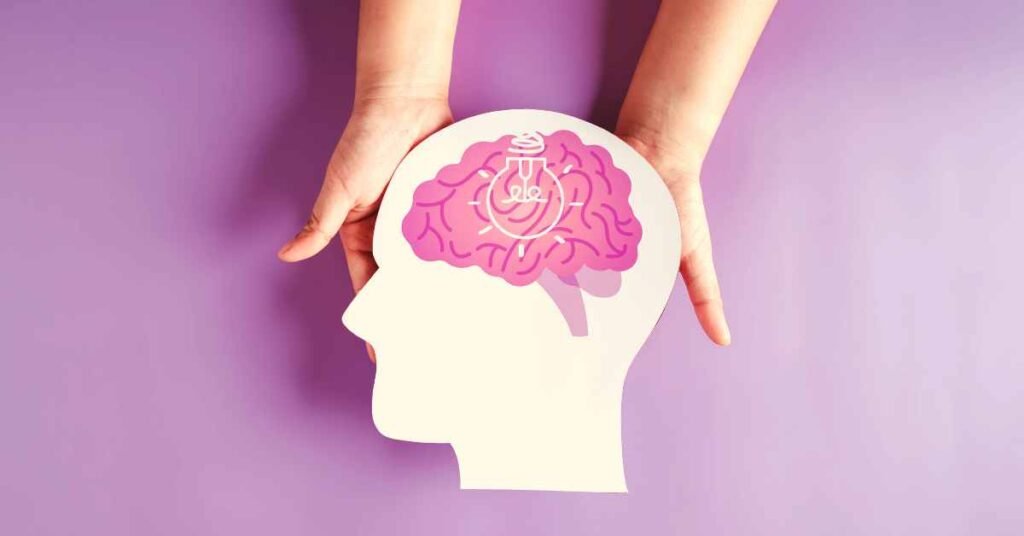Tea, a beverage with a rich cultural history spanning centuries, has long been celebrated for its diverse flavors and potential health benefits.
Among its many positive attributes, tea’s impact on brain cell health stands out as a subject of increasing interest and scientific inquiry.
In this article, we delve into the relationship between tea consumption and cognitive well-being, exploring the compounds in tea that contribute to brain health and the potential benefits for preserving and enhancing brain cells.
Tea Components and Brain Health

a. Caffeine and L-Theanine Duo
One of the primary components of tea, caffeine, is renowned for its stimulating effects on the central nervous system.
It enhances alertness, concentration, and mood. In tea, however, caffeine comes paired with an intriguing counterpart – L-theanine.
L-theanine is an amino acid that promotes relaxation and reduces the jittery effects often associated with caffeine.
This unique combination is believed to create a synergistic relationship, fostering a state of focused calmness conducive to cognitive function.
b. Antioxidants:
Tea, whether green, black, white, or oolong, is rich in antioxidants, particularly polyphenols.
These compounds play a crucial role in protecting cells from oxidative stress caused by free radicals. In the brain, oxidative stress is associated with aging and various neurodegenerative diseases.
By neutralizing free radicals, the antioxidants in tea may contribute to the preservation of brain cells and mitigate the risk of cognitive decline.
Tea and Cognitive Performance

a. Enhanced Attention and Memory:
Studies have suggested that the combination of caffeine and L-theanine in tea can have a positive impact on cognitive performance.
The duo is thought to improve attention, reaction time, and memory.
This is especially relevant in the context of preventing age-related cognitive decline and supporting overall brain function.
b. Neuroprotective Effects:
Certain tea compounds, including catechins found in green tea, have demonstrated neuroprotective effects in preclinical studies.
These effects are attributed to their ability to cross the blood-brain barrier and exert anti-inflammatory and antioxidant actions, potentially safeguarding brain cells from damage.
Tea Types and Their Brain Benefits
a. Green Tea:
Green tea, rich in catechins such as epigallocatechin gallate (EGCG), is associated with various cognitive benefits.
EGCG, in particular, has been studied for its potential to protect neurons, modulate neurotransmitter activity, and enhance memory.
Regular consumption of green tea has been linked to a reduced risk of developing neurodegenerative diseases.
b. Black Tea:

While black tea undergoes a more extensive oxidation process compared to green tea, it still contains valuable compounds.
The theaflavins and thearubigins found in black tea have been explored for their potential neuroprotective effects.
Additionally, black tea’s caffeine content contributes to its cognitive-boosting properties.
c. White Tea:
White tea, minimally processed and rich in antioxidants, is recognized for its delicate flavor and potential brain health benefits.
Although research on white tea’s specific impact on brain cells is limited compared to green and black tea, its polyphenol content suggests it may offer similar protective effects.
Tea and Aging-Related Cognitive Decline
a. Alzheimer’s Disease and Dementia:
Alzheimer’s disease, the most common form of dementia, is characterized by the accumulation of beta-amyloid plaques in the brain.
Some studies indicate that the polyphenols in tea may help inhibit the formation of these plaques and reduce the risk of developing Alzheimer’s disease.

While more research is needed, these findings suggest a potential role for tea in supporting cognitive health as individuals age.
b. Mood and Cognitive Function:
Beyond preventing severe cognitive decline, tea consumption has been associated with improvements in mood and overall cognitive function.
The relaxing properties of L-theanine, combined with caffeine’s alertness boost, create a balanced mental state that may positively influence long-term cognitive well-being.
Optimal Tea Consumption for Brain Health
a. Moderation and Timing:
While tea has numerous health benefits, moderation is key.
Excessive caffeine intake can lead to negative side effects, including disrupted sleep and increased anxiety.
It is advisable to limit tea consumption to moderate levels and avoid excessive intake, especially in the evening.
b. Quality Matters:
The quality of tea leaves can significantly impact the concentration of beneficial compounds.
Opting for high-quality, organic teas ensures a more potent dose of antioxidants and other neuroprotective components.
c. Variety in Tea Choices:

To maximize the potential benefits for brain health, consider incorporating a variety of teas into your routine.
Experimenting with green, black, white, and herbal teas allows you to enjoy diverse flavors while exposing your brain to a range of beneficial compounds.
Final Word
In the ever-evolving landscape of health and wellness, tea emerges as a noteworthy contender in the quest for cognitive vitality.
The intricate interplay of caffeine, L-theanine, and antioxidants found in various types of tea underscores its potential to support brain cell health.
While further research is needed to fully elucidate the mechanisms and extent of these benefits, the existing body of evidence suggests that enjoying a steaming cup of tea may be a delicious and health-conscious way to nurture your brain for years to come.
MEDICAL DISCLAIMER
Itsnevernotteatime.com cannot and does not contain medical/health advice. The medical/health information is provided for general and educational purposes only and is not a substitute for professional advice.




